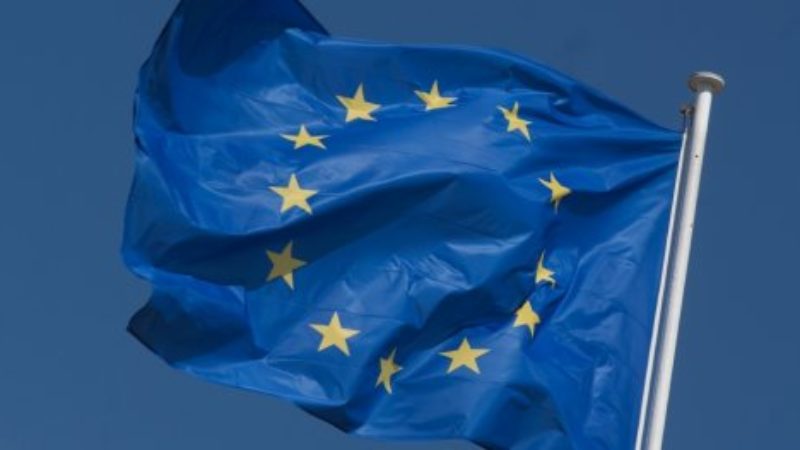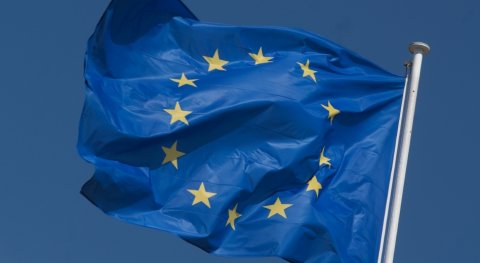
It’s a pity the ‘spin’ put on a new study of European Parliament votes published by Policy Network this week* called the Lib Dems ‘enthusiastic’ and Labour only ‘ambiguous’ as Europeans, when the analysis itself showed that the only issues where Clegg’s MEPs supported decisions against Labour were not because they were more pro-European but simply more right-wing.
In the wake of the Clegg-Farage television debates, Labour must not allow the Lib Dem leader to falsely steal the clothes as the only pro-European British party. Indeed, for the Deputy Prime Minister of the UK to challenge a party with not a single MP to a debate on an equal footing, was all about the Lib Dem leader putting his own party interests forward in a way which always risked being counter-productive to the pro-European case.

Meanwhile, putting aside quibbles about the representativeness of the 15 key votes studied in the new survey, it is Labour MEPs above all other parties that emerge best from the detailed analysis.
We’re on the winning side in European Parliament votes 84% of the time, compared to just 67% for the Lib Dems, 54% for the Conservatives and 53% for UKIP. Labour yields most actual influence.
But it is the suggestion that British Lib Dems agree more of the time with MEP colleagues in their own European grouping that needs challenging.
The examples cited by the authors concern Lib Dem MEPs opposing strengthened rights for women to takes maternity leave and seeking to block attempts towards a Financial Transactions or “Robin Hood” Tax. This is all about the unrestricted free market ‘economic’ liberal thinking that took Clegg in to coalition with Cameron in the first place, and is nothing to do with him or his party having more pro-European credentials.
Meanwhile, the 88% rate at which Labour MEPs vote with our Socialist and Democrat colleagues – an even higher figure was suggested in a different London School of Economics study, by the way – should hardly be used to question our own party’s credentials in relation Europe. Labour is shown to have departed from our own European group in votes that CAP reform did not go far enough, in supporting the Financial Transactions Tax but wanting it to have global as well as European reach, and in opposing the suggestion of direct tax-making powers for the EU.
Only the last could Labour be considered less European, but reflecting a position with which most Party members would be comfortable and which I would characterise not as Euro-ambiguous but as Euro-realist.
The report also tries to suggest Labour MEPs are less committed to social legislation than our sister parties, but uses as evidence a vote on services regulation in which we were ‘as one’ in our European group, voting for safeguards against so-called liberalisation of public services. Under Ed Miliband, Labour’s commitment to fair employment rights in Europe is clear and unequivocal. Indeed scroll down to the end of the research report and the authors themselves concede that it is British Lib Dems who are perceived as being “too compromising and elitist.”
Their conclusion on Labour MEPs is that we strike a balance between seeking to be both a reliable partner in Brussels, but at the same time being tough in defending British interests. Unambiguously, that’s not a bad place to be, coming up to European Elections.
Meanwhile the report provides no succour whatsoever for David Cameron.
It shows what we all know that by leaving the European Conservative (EPP) grouping, the British Tories have won autonomy at the expense of losing influence. The statistics show that Cameron’s MEPs are on the winning side in barely half the winning votes, compared to their former EPP partners. Moreover, the ONLY times in all of the votes analysed that the Tories were successful, they were able to be so precisely because the EPP was supporting the same position.
This is decisive proof that Cameron’s move to isolate himself on the European Right hasn’t had any positive effect in actual decision-making, and has simply lost him leverage to win positions that he would formerly have had more ability to do.
Of course where Labour and the Tories agree on specific British positions, it is the country and not just the Tories which is losing out.
Finally, there are no surprises either about UKIP, whose MEPs are shown to have a ‘non-voting rate’ of 55%. The study shows that the actual issues which Nigel Farage bangs on about most – the budget, CAP reform and banking regulation – were the very same votes where he absented himself personally from the European Parliament chamber.
So Labour as ambiguous Europeans? Absolutely not.
What the voting record does show is Lib Dems are right-wing, Tories are ineffectual and UKIP are absent.
But Labour in the European Parliament is confirmed as being pro-European but pro-reform. It shows we’re getting it just about right.
Richard Howitt MEP is Labour Member of the European Parliament for the East of England and Chair of the European Parliamentary Labour Party.
*The Policy Network survey can be downloaded here.




More from LabourList
‘A case for hope amid hard times’
Eluned Morgan splits with Sarwar and backs Prime Minister
‘Putting our values into action: Labour should make social security work for everyone who needs it’